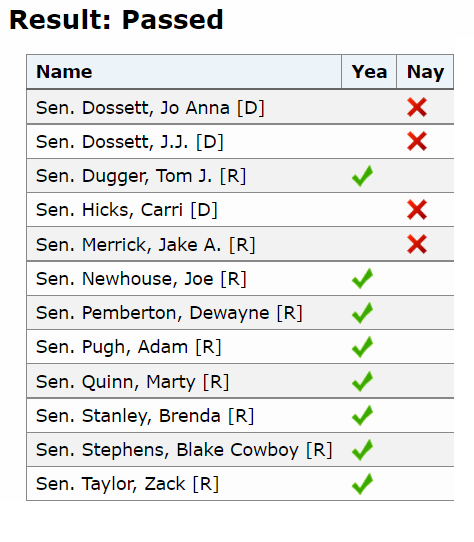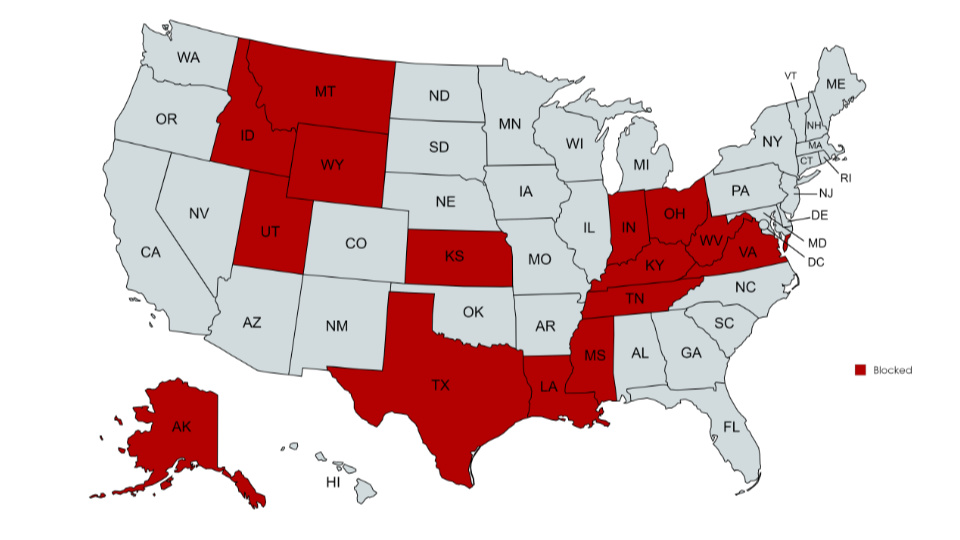Oklahoma recently passed (and Governor Kevin Stitt signed into law) HB3543, which aims to protect free expression in higher ed from “disruptions.” It’s fairly obvious that this law is aimed at institutions that essentially let “protest” mobs run amok and shout down or otherwise disrupt speakers – a favored tactic among illiberal left (“woke”) activists that we’re intimately familiar with.
The bill explicitly targets behavior that “materially and substantially disrupts” expression, including “engaging in fighting, violent or other unlawful behavior” or “physically blocking or using threats of violence to prevent any person from attending, listening to, viewing or otherwise participating in an expressive activity.”
The “physically blocking” portion is noteworthy, as activists have been known to form human barricades blocking doors to prevent access or free movement during scheduled events. My suspicion was that certain activist speech suppression tactics such as pulling a fire alarm while activists are speaking would not be covered, but this appears to already be covered by prohibiting “other unlawful behavior.” Pulling a fire alarm in higher ed with the intent to disrupt is usually a misdemeanor, although in certain locations it has been felonized (e.g., hospitals, lower ed).
The bill also institutes a committee to “review the free speech policies of Oklahoma public universities.”
Vote Breakdown
HB3543 was sponsored by Representative Chad Caldwell (R) and Senator Julie Daniels (R). It passed 8-4. Here is a breakdown of the votes:

It should be no surprise that the only “D” votes here are nays, although we also see two Republicans voting nay as well.
Thank You for Reading
If you like what you have read, feel free to sign up for our newsletter here:
About the Author
Related Posts
Oklahoma recently passed (and Governor Kevin Stitt signed into law) HB3543, which aims to protect free expression in higher ed from “disruptions.” It’s fairly obvious that this law is aimed at institutions that essentially let “protest” mobs run amok and shout down or otherwise disrupt speakers – a favored tactic among illiberal left (“woke”) activists that we’re intimately familiar with.
The bill explicitly targets behavior that “materially and substantially disrupts” expression, including “engaging in fighting, violent or other unlawful behavior” or “physically blocking or using threats of violence to prevent any person from attending, listening to, viewing or otherwise participating in an expressive activity.”
The “physically blocking” portion is noteworthy, as activists have been known to form human barricades blocking doors to prevent access or free movement during scheduled events. My suspicion was that certain activist speech suppression tactics such as pulling a fire alarm while activists are speaking would not be covered, but this appears to already be covered by prohibiting “other unlawful behavior.” Pulling a fire alarm in higher ed with the intent to disrupt is usually a misdemeanor, although in certain locations it has been felonized (e.g., hospitals, lower ed).
The bill also institutes a committee to “review the free speech policies of Oklahoma public universities.”
Vote Breakdown
HB3543 was sponsored by Representative Chad Caldwell (R) and Senator Julie Daniels (R). It passed 8-4. Here is a breakdown of the votes:

It should be no surprise that the only “D” votes here are nays, although we also see two Republicans voting nay as well.
Thank You for Reading
If you like what you have read, feel free to sign up for our newsletter here:
About the Author
Related Posts
More from Title IX for All
Accused Students Database
Research due process and similar lawsuits by students accused of Title IX violations (sexual assault, harassment, dating violence, stalking, etc.) in higher education.
OCR Resolutions Database
Research resolved Title IX investigations of K-12 and postsecondary institutions by the Department of Education’s Office for Civil Rights (OCR).
Attorneys Directory
A basic directory for looking up Title IX attorneys, most of whom have represented parties in litigation by accused students.






